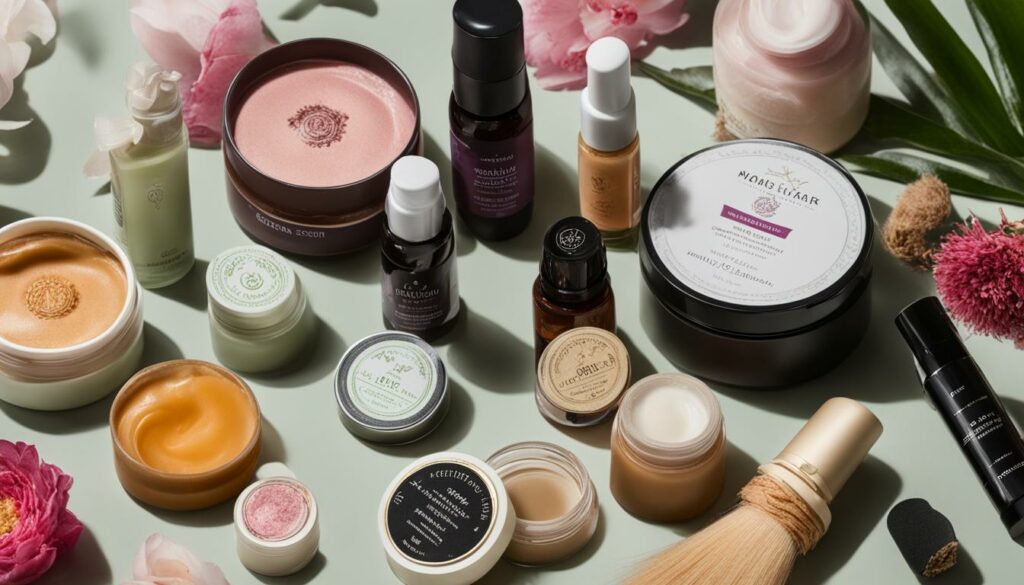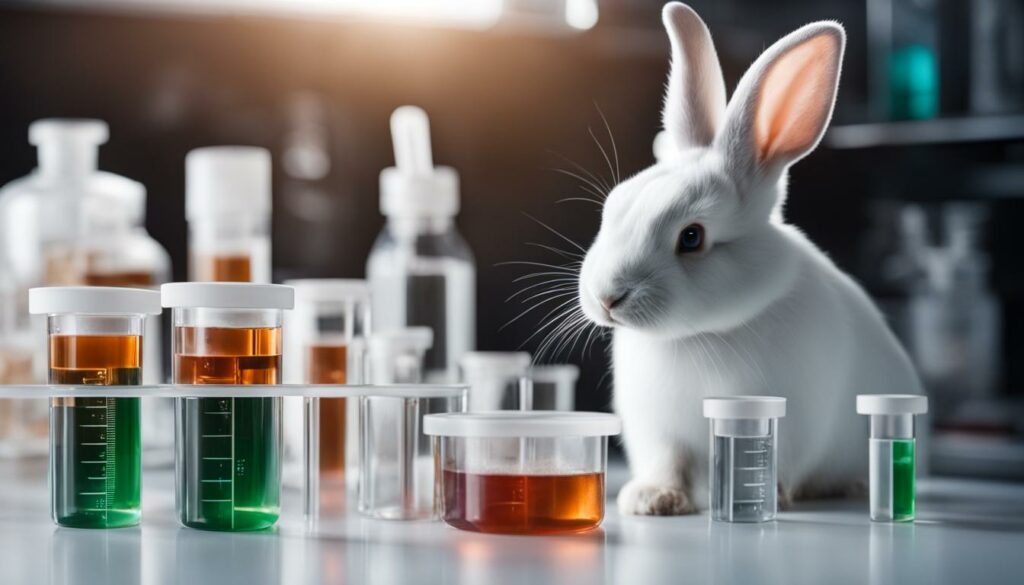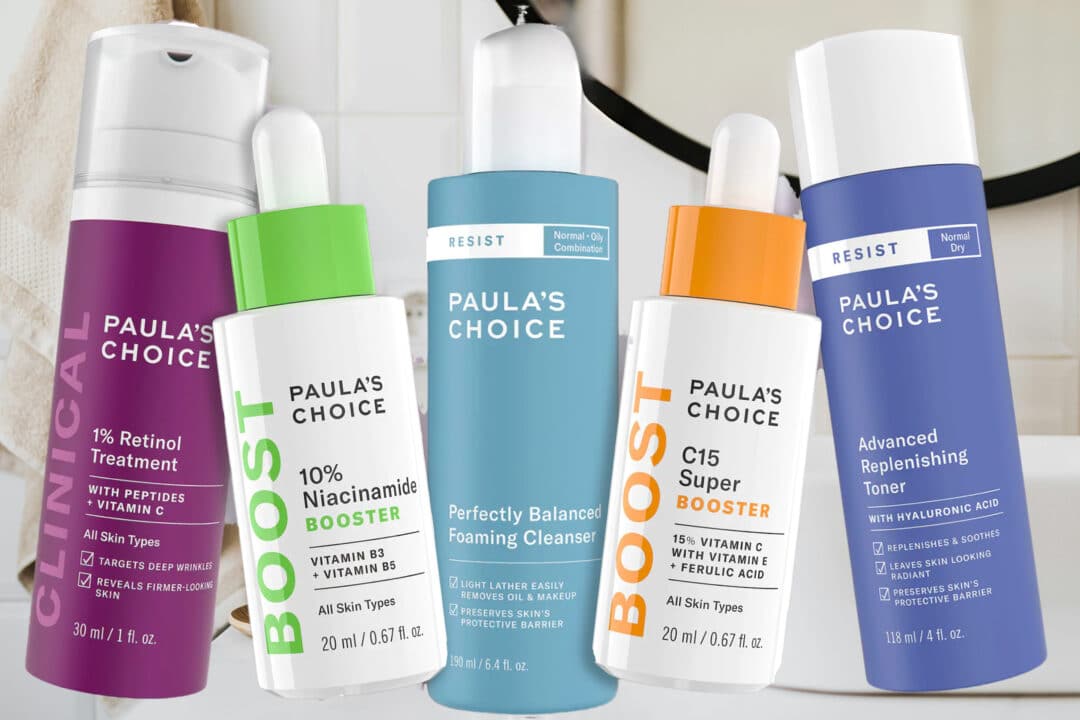As someone deeply immersed in the realm of skincare, ethical beauty, and what it means to be a conscious consumer, I find the discussion around whether Paula’s Choice is cruelty-free and vegan to be particularly compelling.
With a well-established reputation for effective skin solutions, Paula’s Choice operates under the larger umbrella of Unilever. This association brings its challenges, especially considering Unilever is not universally recognised as a cruelty-free entity.
However, it’s important to note that Paula’s Choice itself does not test on animals and is not available in markets where such practices are enforced by law, staying true to the ethos that initially defined its brand.
The brand is certified as cruelty-free by both Leaping Bunny and PETA, but when it comes to vegan products, there’s a shade of nuance. Not all Paula’s Choice offerings are vegan, as some contain animal-derived ingredients — a crucial detail for those on a strict vegan beauty quest.
Is Paula’s Choice cruelty-free? It Absolutely is. Are they Vegan? Not entirely!
This presents an ethical conundrum: can a brand truly align with the convictions of cruelty-free and vegan advocates when connected to a parent company like Unilever? My perspective pivots on transparency and informed decisions. Let’s jump into the particulars to understand better where Paula’s Choice stands.
Key Takeaways
- Paula’s Choice is certified cruelty-free by Leaping Bunny and PETA but is not 100% vegan.
- Unilever’s ownership of Paula’s Choice complicates the brand’s ethical perception for some consumers.
- Certification from credible organisations lends support to Paula’s Choice as a cruelty-free entity.
- When pondering skincare options, consider both a brand’s policies and its parent company’s reputation.
- For vegan skincare users, vigilance is key when selecting products to ensure they align with cruelty-free and vegan standards.
- Paula’s Choice does not carry out animal testing, nor do they operate in countries that require animal testing on cosmetics by law.
Table of Contents
Understanding Cruelty-Free and Vegan Terminology in Skincare
As someone passionate about the intersection of beauty and ethics, I find the journey towards cruelty-free and vegan skincare to be filled with intricacies and nuances. It begins with unraveling the definitions and implications behind frequently-used yet often misunderstood terms.
The Difference Between Cruelty-Free and Vegan
Distilling the essence of ‘cruelty-free’ and ‘vegan’ within the beauty industry is a starting point for any conscious consumer. A cruelty-free brand is one that has established itself in opposition to animal testing, ensuring that from conception to shelf, their products are devoid of any such practices. On the other hand, vegan beauty products speak to a formula that shuns any animal-derived ingredients, upholding a standard that respects all forms of life.
Certifications Indicating Ethical Practices
Certifications are the compass that guides us through the sea of claims. Recognising authentic cruelty-free brands can be made simpler through seals of approval from well-known third-party organisations like Leaping Bunny and PETA. Such validations are vital in not only navigating but also supporting the movement towards more compassionate consumer choices.
Misconceptions and Misleading Labelling
Despite these certifications, the market is not without its wolves in sheep’s clothing. Brands may tout natural ingredients and ethical stances, yet, in some cases, the reality behind their labelling is vaguer than it appears. It’s imperative that as we dip our toes into the realm of ethical skincare, we remain vigilant and discerning in scrutinising the validity of such claims.

- Animal testing: a complete no-go for truly cruelty-free brands
- Vegan beauty: beyond cruelty-free, it’s about plant-based prosperity
- Certifications: they’re the lighthouse in your ethical beauty voyage
- Labels: read them closely, as authenticity often lies in the details
In the company of others who strive for a kinder beauty industry, our collective choices underscore a pivotal trend. We’re not just choosing products, we’re advocating for a future where cruelty-free and vegan beauty are not just alternatives but the standard.
Examining Paula’s Choice Animal Testing Policies
As a devotee of ethical skincare, my exploration into the realm of cruelty-free skincare has led me to rigorously examine the animal testing policies of various brands. Paula’s Choice has consistently emerged as a leader in this area, advocating against animal testing with a policy that echoes across their entire production line. My findings reveal that this isn’t merely a facade but a deeply ingrained philosophy.
Paula’s Choice distinguishes itself from the pack with its staunch approach to animal welfare. Their dedication to operating outside of territories such as mainland China, where the law imposes compulsory animal testing, underlines their ethical standpoint. Here’s how this decision impacts their certification:
| Criteria | Paula’s Choice Status |
|---|---|
| No Testing on Animals | Complies at all stages |
| Transparent Supply Chain | Ensures suppliers adhere to policy |
| Avoidance of Mandatory Testing Markets | Does not sell in mainland China |
| Certification Status | Retains crucial cruelty-free certifications |
My trust in this brand has only strengthened upon learning of their unwavering commitment to sourcing and production integrity. It’s heartening to see entities like Paula’s Choice paving the way, all the while maintaining open communication with their consumers concerning their crusade against animal cruelty in the beauty industry. They do not just comply with the minimum standards, but rather, they set a precedence of what it truly means to embody cruelty-free skincare and robust animal testing policies.
Ownership Impact: Unilever’s Influence on Paula’s Choice

As a devoted follower of the beauty industry’s evolution, I’ve closely observed the effect that acquisitions can have on beloved brands. The Unilever Paula’s Choice partnership illustrates these dynamic changes, particularly regarding parent company ethics. The deepening relationship between niche beauty labels and beauty industry conglomerates brings both opportunities and challenges.
Undoubtedly, my analysis isn’t just about the products but also about the values the companies represent. With Unilever at the helm, Paula’s Choice remains committed to its cruelty-free philosophy. However, Unilever’s own approach to animal testing and ethical concerns inevitably forms a shadow over the brand’s luminous reputation.
Engaging in a deep dive, let’s contrast the positions on ethics represented by Unilever and Paula’s Choice. This comparison may illuminate the sometimes opaque nature of ethical practices within these corporately intertwined identities:
| Aspect | Paula’s Choice | Unilever |
|---|---|---|
| Cruelty-Free Status | Certified by Leaping Bunny & PETA | Does not hold a global cruelty-free recognition |
| Product Distribution | Does not sell in markets requiring animal testing | Broad market distribution, not exempting those requiring animal testing |
| Corporate Philosophy | Transparent ethical commitments | Emphasizes a variety of sustainability initiatives |
| Consumer Perception | Known for strict adherence to cruelty-free practices | Perception varies owing to diverse brand portfolio and various practices |
Assessing the Cruelty-Free Status of Paula’s Choice
In my quest to determine whether Paula’s Choice meets the stringent requirements for cruelty-free certification, it’s essential to delve into the nuances of both their policies and the larger framework of cosmetic regulations and animal testing laws. To help you understand the robustness of Paula’s Choice commitment to ethical beauty, let’s explore the criteria that dictate their cruelty-free standing.
Criteria for Cruelty-Free Certification
A brand’s cruelty-free certification is far more than a mere label; it’s a commitment to a set of ethical practices that ensure no animal testing occurs at any stage of product development. Paula’s Choice has met these exacting standards which include:
- Transparent supply chains free from any form of animal testing.
- Strict supplier agreements to uphold these practices.
- Partnerships with third-party certifiers like Leaping Bunny and PETA.
- Consistent reviews to comply with the evolving criteria.
Interaction with Territories Mandating Animal Testing
One of the most significant factors affecting a brand’s cruelty-free status is the location in which it’s sold. Some regions have laws that mandate animal testing, and Paula’s Choice has taken a firm stance by refusing to market their products in such areas, predominantly mainland China.
This decision ensures their cruelty-free certification remains intact, respecting both ethical considerations and consumer preferences for animal-friendly products.
How Current Laws Affect Paula’s Choice Positioning
As I reflect on the impact of laws on Paula’s Choice, it’s notable that the cosmetic industry is subject to a patchwork of regulations across the globe. However, by adhering to stringent policies, Paula’s Choice manoeuvres through this complex legal landscape whilst maintaining their cruelty-free ethos. Here’s a snapshot of how they align with various cosmetic regulations:
| Region | Laws on Animal Testing | Paula’s Choice Position |
|---|---|---|
| European Union | Strict ban on animal testing for cosmetics | Full compliance with EU regulations |
| Mainland China | Mandatory animal testing for imported cosmetics | No product distribution in this region |
| United States | No federal laws requiring animal testing; some states ban it | Upholds cruelty-free practices in accordance with certification standards |
| Global | Diverse legislation; some require, others ban animal testing | Adheres to the strictest guidelines to maintain global cruelty-free certification |
Is Paula’s Choice Vegan-friendly?
Paula’s Choice presents an intriguing selection of vegan-friendly options amidst their wider catalogue. When I looked at the skincare ingredients, they reveal a landscape populated with both animal-derived substances and their plant-based or synthetic counterparts.
Identifying Animal-Derived Ingredients in Skincare
Scouring ingredient lists is akin to modern-day foraging for many of us. Common culprits such as beeswax, carmine, and collagen often lurk undetected but play a pivotal role in formulating many beauty products. My research into Paula’s Choice vegan products affirms that such ingredients are consciously omitted to cater to vegan skincare enthusiasts.
Vegan Alternatives Used in Paula’s Choice Products
The paradigm shift towards ethical consumption compels brands to embrace vegan alternatives. Paula’s Choice navigates this trend with finesse, substituting animal-derived components with innovative plant-derived or synthetic ingredients. The focus on incorporating such alternatives proves the brand’s efforts to sustain cruelty-free and vegan-friendly skincare regimes.
How to Spot Non-Vegan Ingredients
Vigilance is key as I pore over product labels, deciphering complex scientific jargon to unveil non-vegan components. This keen attention to detail usually ensures that my utilisation of Paula’s Choice vegan products aligns seamlessly with a compassionate lifestyle.
Below is a table that simplifies the identification of common non-vegan ingredients juxtaposed with their vegan substitutes found in Paula’s Choice formulations:
| Non-Vegan Ingredient | Vegan Alternative | Common Use |
|---|---|---|
| Beeswax (Cera Alba) | Candelilla Wax (Euphorbia Cerifera) | Emulsifiers, Texture Enhancers |
| Carmine (CI 75470) | Iron Oxide (CI 77491, CI 77492, CI 77499) | Colorants |
| Collagen | Synthetic Peptides | Skin-Replenishing |
| Lanolin | Shea Butter (Butyrospermum Parkii) | Skin Conditioning |
Final Thoughts!
As I reflect on the holistic journey of Paula’s Choice under the canopy of Unilever, it is evident that the brand significantly contributes to the narrative of ethical beauty choices.
Their unwavering commitment is beautifully substantiated by robust cruelty-free certifications and comprehensive ethical policies. To my discerning audience, this represents an assurance that their skincare choices can be both efficacious and principled.
Nevertheless, it is pretty much straight forward to acknowledge that while Paula’s Choice exemplifies conscious consumerism, it falls short of being an entirely vegan brand.
Those among you who are steadfast in your quest to patronise exclusively vegan beauty purveyors should therefore remain vigilant, meticulously scanning labels to ensure alignment with your values.
Looking ahead, the beauty industry finds itself at a crossroads, one that Paula’s Choice navigates alongside us, its sails billowed by customer advocacy and ethical demands.
How will the Unilever impact play out in the long run? Only time will tell. But I trust that as consumers, our voices will continue to shape the direction in which brands like Paula’s Choice—and indeed the wider beauty industry—will steer into the future.
FAQ
Is Paula’s Choice a cruelty-free skincare brand?
Yes, Paula’s Choice is certified as cruelty-free by both the Leaping Bunny and PETA. They do not conduct animal testing on their products or ingredients, nor do they sell in markets where animal testing is required by law.
Does Paula’s Choice offer vegan skincare products?
While Paula’s Choice is not considered 100% vegan, they offer a selection of vegan beauty products that do not contain animal-derived ingredients. Conscious consumers should check product labels for specific vegan-friendly items.
What is the difference between ‘cruelty-free’ and ‘vegan’ in skincare?
‘Cruelty-free’ refers to products that have not been tested on animals at any stage of their development, while ‘vegan’ indicates that a product does not contain any animal-derived ingredients.
Are there certifications that can indicate ethical beauty practices?
Yes, certifications such as those from the Leaping Bunny and PETA are indicators of a brand’s commitment to ethical practices including being cruelty-free or vegan.
Can there be misconceptions and misleading labelling regarding cruelty-free and vegan products?
Absolutely. While there are strict definitions, some brands may use the terms loosely or highlight certain ethical aspects without being fully transparent. It is important for consumers to research and understand a brand’s policies.
How does Unilever’s ownership affect Paula’s Choice cruelty-free status?
The ownership by Unilever, which is not recognized as a cruelty-free company, may concern some consumers. However, Paula’s Choice maintains its cruelty-free commitments and operation policies independently of its parent company.
What criteria must Paula’s Choice meet to maintain its cruelty-free certification?
Paula’s Choice must ensure that neither their products nor ingredients are tested on animals, a policy that extends to their suppliers and any third parties.
How do different territories’ laws regarding animal testing affect Paula’s Choice?
Paula’s Choice does not sell their products in markets where animal testing is mandatory, such as mainland China. This allows them to maintain their cruelty-free stance despite varied international regulations.
With changing animal testing laws, how does Paula’s Choice keep up their cruelty-free positioning?
Paula’s Choice stays abreast of the evolving legal landscape surrounding animal testing and adjusts their policies accordingly to ensure they continue meeting cruelty-free standards.
How can I identify animal-derived ingredients in skincare products?
It is advisable to read product labels carefully. Look out for common animal-derived ingredients like beeswax, carmine, or collagen, which are not used in vegan products.
What vegan alternatives does Paula’s Choice use in their products?
Paula’s Choice uses a variety of plant-based and synthetic alternatives to animal-derived ingredients in their vegan-friendly products.
What should I do to ensure the products I use are vegan?
To ensure the products you use are vegan, you should review the ingredients list on each product for any animal-derived substances, and look for vegan certification logos.

